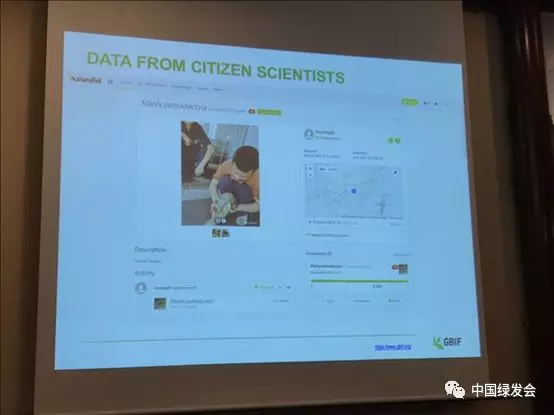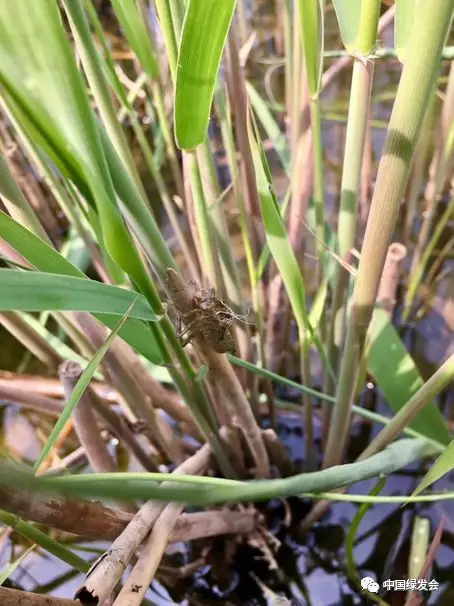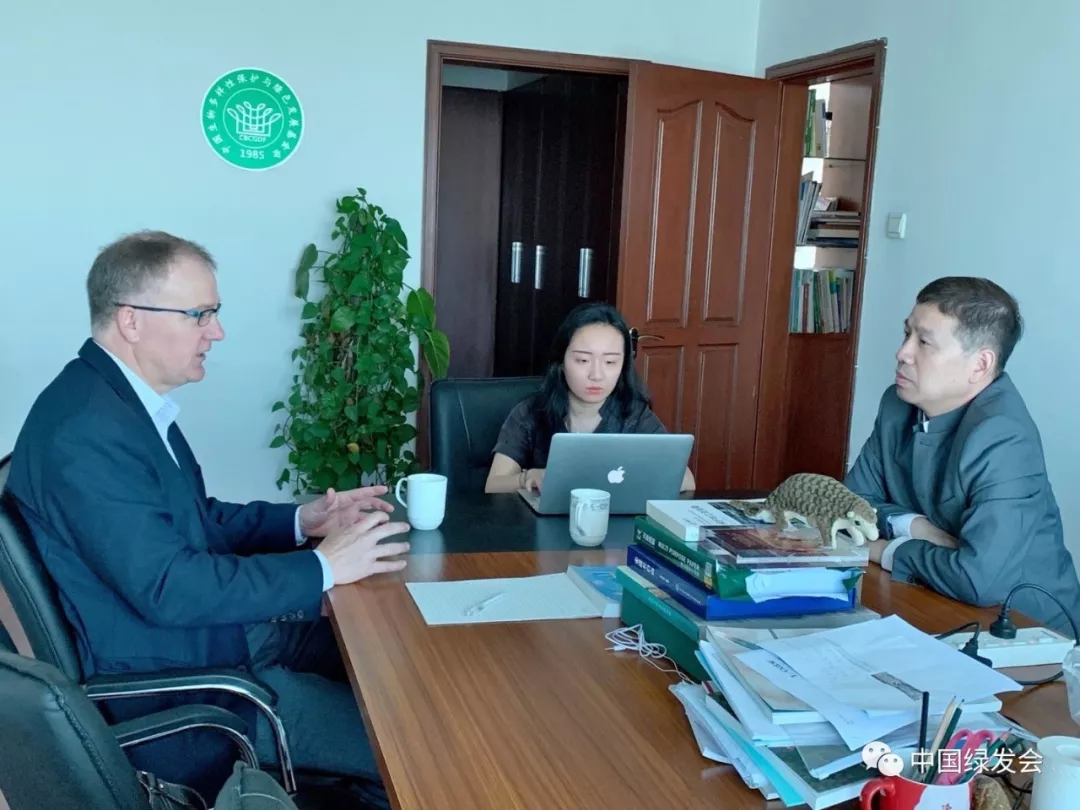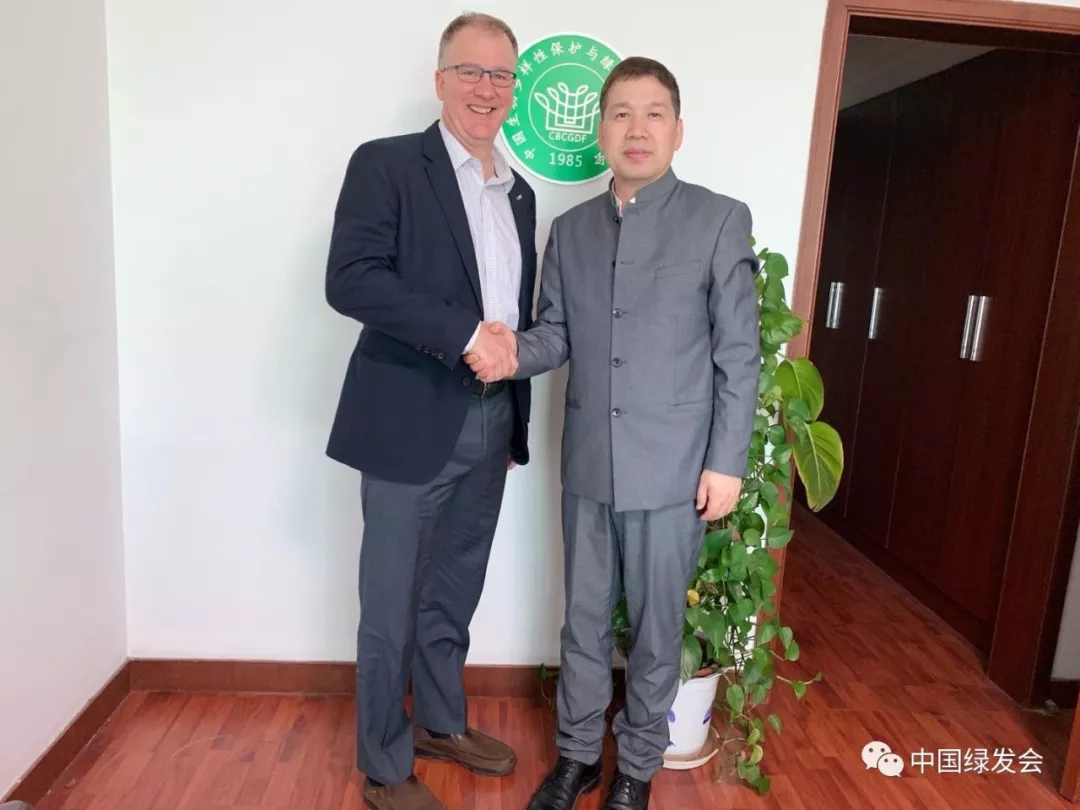Recently, Dr. Joe Miller, the new Executive Secretary of Global Biodiversity Information Facility (GBIF), visited the Beijing office of China Biodiversity Conservation and Green Development Foundation (CBCGDF) and shared and communicated in depth with Dr. Zhou Jinfeng, the Secretary-General of CBCGDF, on the cooperation opportunities in the field of biodiversity information and related areas.
Dr. Zhou introduced Dr. Miller that CBCGDF officially became a date publisher of GBIF in July 2018. It is the only organization in Chinese mainland that has the official date release qualification of GBIF platform except the Chinese Academy of Sciences (GBIF CAS-node). As an NGO dedicated to biodiversity conservation and sustainable development, one of the main directions and strengths of its work is to carry out protection work at the levels of ecosystems, species and genes through the mobilization of civil volunteers and young student volunteer communities.
CBCGDF, through the already established “Citizen Scientist” project and the innovative “China Conservation Area” (CCAfa) system, has published some data, especially for China’s representative endangered species, which have been observed in the field and in conservation areas successfully on the GBIF platform through the Integrated Publishing Toolkit (IPT). Pangolin is one of the focuses of CBCGDF’s efforts in the field of biodiversity data information; the latest data includes the critically endangered species Libellula Angelina observed in the “China Conservation Area for Libellula Angelina at Tianjin”.
According to Dr. Miller, GBIF is an international network and research infrastructure designed to provide open access to all types of life-related data on Earth. The record freely available to everyone through the GBIF.org platform provides researchers and decision makers with unparalleled information resources that bring together evidence of locations and times of observations or collections of species collected together over the centuries and across the globe. He said that compared with the 2013 edition of the Chinese Biological Species List, GBIF is still relatively lacking data on Chinese species.
According to Dr. Miller, GBIF is joined to the GBIF Secretariat by a country or region and by members of international organizations by signing a Memorandum of Understanding. At present, the contact with the Chinese mainland is not very close, but at the same time things are developing. For the fifteenth meeting of the Conference of the Parties to the United Nations Convention on Biological Diversity to be held in Kunming next year (CBD CoP15), the GBIF Secretariat will send representatives to participate. At the beginning of this year, Dr. Zhou held a conference call with the GBIF Secretariat around the CBD CoP15 and the theme of “win-win cooperation and deep participation in global environmental governance”. The simplified Chinese version of the official GBIF.org website is now officially online.
Dr. Zhou said that CBCGDF is willing to play a role as a bridge between GBIF and relevant departments of China through its own platform features and advantages. Dr. Miller expressed his approval and gratitude and expressed the hope that he will continue to discuss with CBCGDF in the future, including returning to South China later this year to participate in a digital conference on the “Belt and Road” initiative.
It is worth mentioning that Dr. Miller agrees and is interested in the CBCGDF “Civil Scientist” project and the CCAfa system introduced by Dr. Zhou. He also analogically introduced a promotion of “contribution science” in the world, a species identification and sharing platform iNaturalist (www.inaturalist.org), whose application can also be installed on mobile phones - using maps and GPS satellite positioning as a means, both biologists and the general public can become "citizen scientists". The sharing of biodiversity data information can be realized conveniently and efficiently through map drawing or shared observation. Dr. Zhou said that he is no stranger to this program platform, and CBCGDF is also very willing to release more and better data in GBIF through these channels.
The amount of information exchanged between Dr. Zhou and Dr. Miller was quite rich. Stay tuned to CBCGDF’s platforms for more relevant and exciting content.

Associated with GBIF through iNaturalist, CBCGDF successfully published the data of Chinese Pangolin "Qiqi" (Photo credit: CBCGDF)

Congratulations with CBCGDF on the successful release of the Chinese Pangolin data, the background of the gbif.org homepage was fixed as "Qiqi". (Photo credit: www.gbif.org)

A Libellula Angelina observed in the CBCGDF “CCA for Libellula Angelina at Tianjin” (Photo credit: CBCGDF volunteers)

The GBIF office buildling located in the Denmark Natural History Museum. (Photo credit: gbif.org)


(Photo credit: CBCGDF)
Original Chinese article:
http://www.cbcgdf.org/NewsShow/4937/9972.html
By / Niu Jingmei
